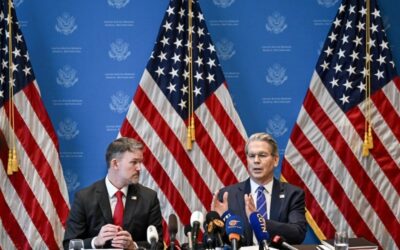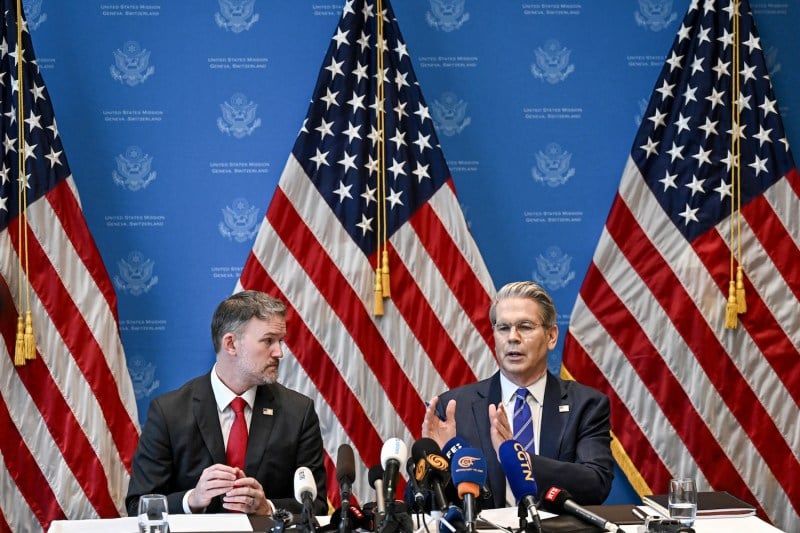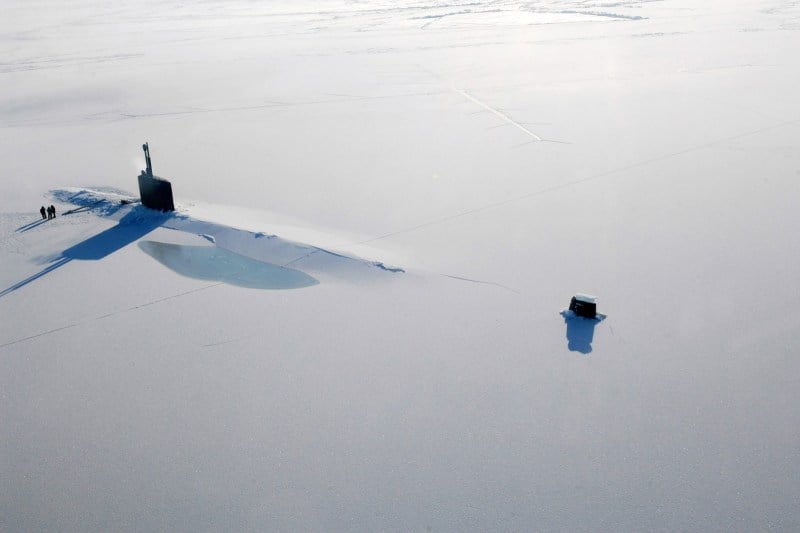How the Oct. 7 Attack on Israel Sank the Palestinian Cause

How the Oct. 7 Attack on Israel Sank the Palestinian Cause
The war in Gaza galvanized sympathy for Palestinians but little more.
Palestinian children peek out of holes in their tent at a makeshift displacement camp set up amid building rubble in Gaza City on May 12. Omar al-Qataa/AFP via Getty Images
In the wake of Hamas’s Oct. 7, 2023, attack on Israel, one could be forgiven for believing that the Palestinian issue had finally moved to the top of the international agenda. Much of the support and sympathy for the roughly 1,200 Israelis killed and 251 taken hostage would give way to a rising chorus of anger and outrage, as Israel’s air and ground campaign resulted in more than 52,000 Palestinian deaths and a humanitarian catastrophe in Gaza. Any doubt that Palestine was now front and center would quickly fade as the Israel-Hamas war threatened to morph into regional confrontation, including strikes by Iran and Israel on each other’s territory. Indeed, by the end of 2023, as the international community found its pro-Palestinian voice and campuses across the United States exploded with protests and demonstrations not seen on any foreign-policy issue since the Vietnam War, it seemed as if the Palestinians’ moment had finally come and that the issue could no longer be denied. How could it?
Looking back, 18 months later—as U.S. President Donald Trump embarks on his first trip to the Middle East—it seems clear that rather than ensuring the centrality of the Palestinian issue, Oct. 7 has produced its eclipse. A combination of factors have pushed the Palestinians and their politics pretty far down the list of regional or international priorities: the fecklessness of the international community, the Biden and now Trump administrations’ preternatural support for Israeli Prime Minister Benjamin Netanyahu’s government, the unwillingness of key Arab states to exact any serious price from Israel (and Washington for its enabling policies), and the utter dysfunction and chaos of the Palestinian national movement. After Oct. 7 and the human misery and suffering it wrought, it’s hard to know precisely what might reenergize the Palestinian issue, let alone create a pathway for a conflict-ending solution. A West Bank intifada? New Israeli and Palestinian leadership? A peace plan from an unpredictable U.S. president looking for a Nobel Peace Prize? Regardless, the paradox of Oct. 7 is clear. On one hand, it demonstrated with a terrifying clarity that the only conceivable solution to the Israeli-Palestinian conflict is a negotiated separation; on the other, it has made the attainment of anything remotely resembling a two-state outcome galactically more difficult.
In the wake of Hamas’s Oct. 7, 2023, attack on Israel, one could be forgiven for believing that the Palestinian issue had finally moved to the top of the international agenda. Much of the support and sympathy for the roughly 1,200 Israelis killed and 251 taken hostage would give way to a rising chorus of anger and outrage, as Israel’s air and ground campaign resulted in more than 52,000 Palestinian deaths and a humanitarian catastrophe in Gaza. Any doubt that Palestine was now front and center would quickly fade as the Israel-Hamas war threatened to morph into regional confrontation, including strikes by Iran and Israel on each other’s territory. Indeed, by the end of 2023, as the international community found its pro-Palestinian voice and campuses across the United States exploded with protests and demonstrations not seen on any foreign-policy issue since the Vietnam War, it seemed as if the Palestinians’ moment had finally come and that the issue could no longer be denied. How could it?
Looking back, 18 months later—as U.S. President Donald Trump embarks on his first trip to the Middle East—it seems clear that rather than ensuring the centrality of the Palestinian issue, Oct. 7 has produced its eclipse. A combination of factors have pushed the Palestinians and their politics pretty far down the list of regional or international priorities: the fecklessness of the international community, the Biden and now Trump administrations’ preternatural support for Israeli Prime Minister Benjamin Netanyahu’s government, the unwillingness of key Arab states to exact any serious price from Israel (and Washington for its enabling policies), and the utter dysfunction and chaos of the Palestinian national movement. After Oct. 7 and the human misery and suffering it wrought, it’s hard to know precisely what might reenergize the Palestinian issue, let alone create a pathway for a conflict-ending solution. A West Bank intifada? New Israeli and Palestinian leadership? A peace plan from an unpredictable U.S. president looking for a Nobel Peace Prize? Regardless, the paradox of Oct. 7 is clear. On one hand, it demonstrated with a terrifying clarity that the only conceivable solution to the Israeli-Palestinian conflict is a negotiated separation; on the other, it has made the attainment of anything remotely resembling a two-state outcome galactically more difficult.
In a conflict in which the two combatants—Israel and Hamas—have elevated the stakes to near-existential levels, it should come as no surprise that outside parties (including a divided, preoccupied, and self-interested international community) would be powerless to alter the trajectory of the conflict, let alone end the war. The Middle East is littered with the dreams, schemes, and aspirations of bigger powers that wrongly believed they could impose their will on smaller ones. Israel—long suspicious of outside interveners—batted back external intervention. Influence on Hamas, particularly its internal core leadership operating underground while evading Israeli intelligence and holding hostages, was limited to Qatar and Egypt and was rarely decisive. Tensions between Russia, China, and the United States and inevitable battles over wording virtually guaranteed that the U.N. Security Council would be slow to act, and even when it did, resolutions alone in New York were hardly able to affect Israeli or Hamas’s decision-making. It took six weeks after Oct. 7 for the Security Council to pass its first resolution—one of only four that would come to fruition. Imposing bilateral sanctions on Israel was always an option. But none of the key European powers chose to go down this road, though France and Britain would sanction Israeli settlers. And a number of countries, including Spain, pledged to halt weapons sales to Israel.
Support for the Palestinian cause increased, with Spain, Ireland, and Norway, among others, recognizing Palestinian statehood. A full year and half later, France may do so as well. Perhaps more consequential were the actions of both the International Court of Justice (ICJ) and the International Criminal Court (ICC), whose resolutions and actions delighted Palestinians and the human rights community. The ICJ is weighing Israel’s responsibility for genocide, and the ICC issued arrest warrants for Netanyahu and former Israeli Defense Minister Yoav Gallant and several Hamas officials. But one would be hard-pressed to conclude that they had any impact on Israel’s decision-making when it came to the war in Gaza. In fact, the main impact of this international opprobrium seemed only to drive Israel’s right-wing coalition into a deeper corner and, with the support of the United States, to resist international efforts to impose real-world costs and consequences on Israel.
Clearly no international effort to support the Palestinian cause or to isolate Israel could have been successful without the support of the United States. And, to say the least, that support would not be forthcoming from the Biden or Trump administrations. It would be difficult to identify a set of actions by either administration that could be construed as significant, serious, or sustained pressure.
Under President Joe Biden, we’d describe the approach as passive aggressive: Tremendous anger and frustration over Netanyahu’s policies were far outweighed by a preternaturally pro-Israeli president who had long identified with Israel’s struggle for independence and security and who seemed incapable of imposing significant forms of pressure, especially as the Palestinian civilian death toll rose exponentially. Of the possible levers of pressure—restricting or conditioning U.S. military assistance, refraining from vetoing or voting for resolutions critical of Israel at the U.N. or other international forums, or adopting pro-Palestinian gestures, such as recognizing a Palestinian state—Biden would steer clear of all three. Once the conflict went regional, with Iran supporting Hezbollah, Hamas, and the Houthis, Biden’s defense of Israel increased, and the prospects of pressure diminished, especially as Israel and Iran attacked each other directly. Biden did withhold delivery of rifles out of concern that they might be used by settlers, paused a shipment of heavy bombs, sanctioned Israeli settlers, and would press Israel on facilitating humanitarian assistance into Gaza. Whatever pressure the Biden administration might have deployed against Israel or gestures it might have made toward the Palestinians were clearly constrained by Hamas’s willful and indiscriminate killing of civilians on Oct. 7 and the taking of hostages. There were reports that the U.S. State Department was weighing options, such as recognition of Palestinian statehood. But these remained stillborn, partly out of concern that such an action would be seen as a reward for terrorism.
If pressuring Israel was open to debate internally under the Biden administration, it appears closed for the season under Trump. Not only did the new president reverse Biden’s policies on sanctioning settlers, delivering heavy bombs, and facilitating humanitarian assistance to Gaza, Trump has allowed Israel to control both the tactics and strategy toward Gaza. The president has all but validated the Israeli right’s dream of a Gaza without Palestinians by announcing a plan to turn Gaza into the “Riviera of the Middle East” and encouraging Palestinians to leave. Still, Trump is nothing if unpredictable, and while we doubt that he’d use any of the levers Biden failed to pull in pressuring Israel, he has demonstrated a rare capacity to act independently: talking to Hamas, negotiating a cease-fire with the Houthis, and starting talks with Iran. Should Trump sense that there are deals to be had to end the war in Gaza or to constrain Iran’s nuclear program, he might turn the heat up. Already, in the days leading up to Trump’s trip to the Middle East—one that will likely skip over Israel—his administration has reportedly negotiated directly with Hamas once again, likely to the ire of Netanyahu. As a result, Hamas announced over the weekend that it would release Israeli American hostage Edan Alexander. As Israel redirects forces from Syria and the West Bank for a major Gaza offensive, Netanyahu might find himself at odds with Trump, who is focused on rebuilding Gaza.
The United States and Israel weren’t the only parties responsible for the diminution of the Palestinian issue. Arab state betrayal of the Palestinian cause has a long history. Key Arab states have championed the Palestinian cause to rally domestic support and to compete with rival regimes. At the same time, these states, especially Syria, Jordan, Iraq, and Egypt, have sought to control the Palestinian national movement when it challenged or was in conflict with their goals. Arab state reaction to Oct. 7, however, seemed to represent a new level of indifference and passivity to what constituted the largest loss of Palestinian lives since the Nakba in 1948, in which 15,000 Palestinians were killed and 750,000 were uprooted. It became clear pretty quickly that key Arab states were not going to allow Oct. 7 to undermine their own equities or relations with Israel or the United States.
There was no shortage of Arab summitry and statements condemning Israel and supporting Palestinians. At the Islamic Summit Conference shortly after Oct. 7 and the joint Islamic-Arab summit in Riyadh, participants rejected Israel’s justification for self-defense and called on the ICC to investigate potential war crimes. Publicly, Arab countries have condemned Israel throughout the war, especially as Palestinian deaths have risen and the humanitarian situation has deteriorated. But it would take Trump’s Gaza plan and his implicit pressure on Egypt and Jordan to absorb Palestinians to finally push the Arab states to formulate their own postwar plan for Gaza, which the administration has largely ignored.
In November 2023, Jordan, with anger mounting on the streets, did recall its ambassador to Israel and instructed the Israeli ambassador in Amman not to return until the war had ended. Later that month, Jordan also made clear that it would not sign an energy-for-water agreement with Israel. Egypt, which was playing a key role in hostage negotiations and had a critical security stake in Gaza, exercised greater caution. As for the Abraham Accord countries, only Bahrain seemed to take any concrete step to demonstrate solidarity, with its elected but largely toothless parliament recalling its ambassador and freezing economic relations with Israel. This seemed to be a symbolic gesture more than anything else.
Several countries, including Saudi Arabia, demonstrated support for the Palestinians by assisting the Palestinian Authority with financial aid; the United Arab Emirates, for its part, constructed a field hospital in Gaza. But on balance, it was clear that despite the staggering death toll, no Arab state was prepared to sacrifice its interests for the Palestinian cause in an effort to compel Israel or the United States to alter its policy. Now, as Trump visits the Gulf, he’ll be wooed and flattered by Arab leaders who clearly understand that his administration has gone well beyond Biden in giving Israel a carte blanche to do what it wants in Gaza and the West Bank. One might pose the question, if the Arab states are not prepared to step up for Palestinians, who else would be expected to?
It may be politically inconvenient for many to admit, but Palestinians have played a key role in their current travails. Hamas’s strategic gamble did return the Palestinian issue to center stage for a time. But at what price and for what benefit? The Oct. 7 attack traumatized Israelis, pushing them away from peace with their neighbors. It led Israel to visit death and destruction on an already long-suffering population in Gaza. Arab publics did not rise up against their governments, let alone against Israel, and the region wasn’t plunged into a multifront war. Israel emerged as a quasi-regional hegemon, possessing an escalation dominance that hollowed out the so-called Axis of Resistance, including exposing Iran’s vulnerabilities and decimating its billion-dollar proxy in Lebanon. There was no crisis in U.S.-Israeli relations, and despite Israel’s growing isolation, the Netanyahu government did not become an international pariah. The Palestinian national movement (which never regained even a measure of cohesion after Yasser Arafat’s death) is now more fractious, divided, and dysfunctional than ever.
Desperate for leadership, Palestinians face a cruel choice between Hamas—now an insurgency rather than a coherent military but still retaining significant influence in Gaza and even more in the West Bank—and the Palestinian Authority, led by the aging, authoritarian, and corrupt Mahmoud Abbas, who barely controls 40 percent of the West Bank and has zero credibility with the Palestinians over whom he presides. Indeed, Palestinians don’t face a choice so much as a sclerotic reality. There’s no mechanism to choose: Elections are important but impossible now. Gaza remains an Israeli free-fire zone with little prospect of better governance and security, and the West Bank may be reaching a point where Israel has annexed it in everything but name.
The Palestinian issue won’t disappear. The question is how much resonance it will have in a region and on an international stage beset with so many other challenges and even opportunities. But little in the last 18 months would suggest that traumatized Israelis and Palestinians are any more willing or able to pressure their leaders to find a solution, that lessons will be learned, or that leaders will emerge to rise above the trauma and politics to create a credible pathway toward a solution. And that, in the end, after all the horror and the bloodletting, may well be the biggest tragedy.
Aaron David Miller is a senior fellow at the Carnegie Endowment for International Peace and a former U.S. State Department Middle East analyst and negotiator in Republican and Democratic administrations. He is the author of The End of Greatness: Why America Can’t Have (and Doesn’t Want) Another Great President. X: @aarondmiller2
Lauren Morganbesser is a junior fellow at the Carnegie Endowment for International Peace
More from Foreign Policy
-

Eight people dressed in camouflage military combat uniforms wade across a river, the water up to their waists. The soldiers carry large backpacks along with their rifles. Snowcapped mountains and a thick forest of evergreen trees loom in the distance. Get Ready for the Aleutian Island Crisis
As conflict heats up in the Arctic, foreign adversaries eye Alaskan territory.
-

U.S. President Donald Trump speaks to reporters before boarding Air Force One at Morristown Municipal Airport in Morristown, New Jersey, on April 27. Trump’s First 100 Days Reveal a ‘Strongman’s’ Unprecedented Weakness
No U.S. president has ever surrendered global power so quickly.
-

An elderly man and woman sit on the ground, the man on his knees as he sorts through something on the ground. Behind him are a rusted cart and bicycle in front of a paint-smeared concrete wall and a battered corrugated metal sign with the words USAID: From the American people” on it. What Trump’s New Budget Says About U.S. Foreign Policy
The president wants to significantly pull back on many of America’s traditional global engagements while spending more on the border and defense.
-

U.S. President Donald Trump listens to Secretary of State Marco Rubio at a cabinet meeting in the White House in Washington, D.C. Rubio’s Reorganization Plan Is a Wrecking Ball
The State Department revamp goes far beyond streamlining—it will devalue human rights and strip away critical expertise.








Join the Conversation
Commenting on this and other recent articles is just one benefit of a Foreign Policy subscription.
Already a subscriber?
.
Subscribe
Subscribe
View Comments
Join the Conversation
Join the conversation on this and other recent Foreign Policy articles when you subscribe now.
Subscribe
Subscribe
Not your account?
View Comments
Join the Conversation
Please follow our comment guidelines, stay on topic, and be civil, courteous, and respectful of others’ beliefs.
Change your username |
Log out
Change your username:
CANCEL
Confirm your username to get started.
The default username below has been generated using the first name and last initial on your FP subscriber account. Usernames may be updated at any time and must not contain inappropriate or offensive language.